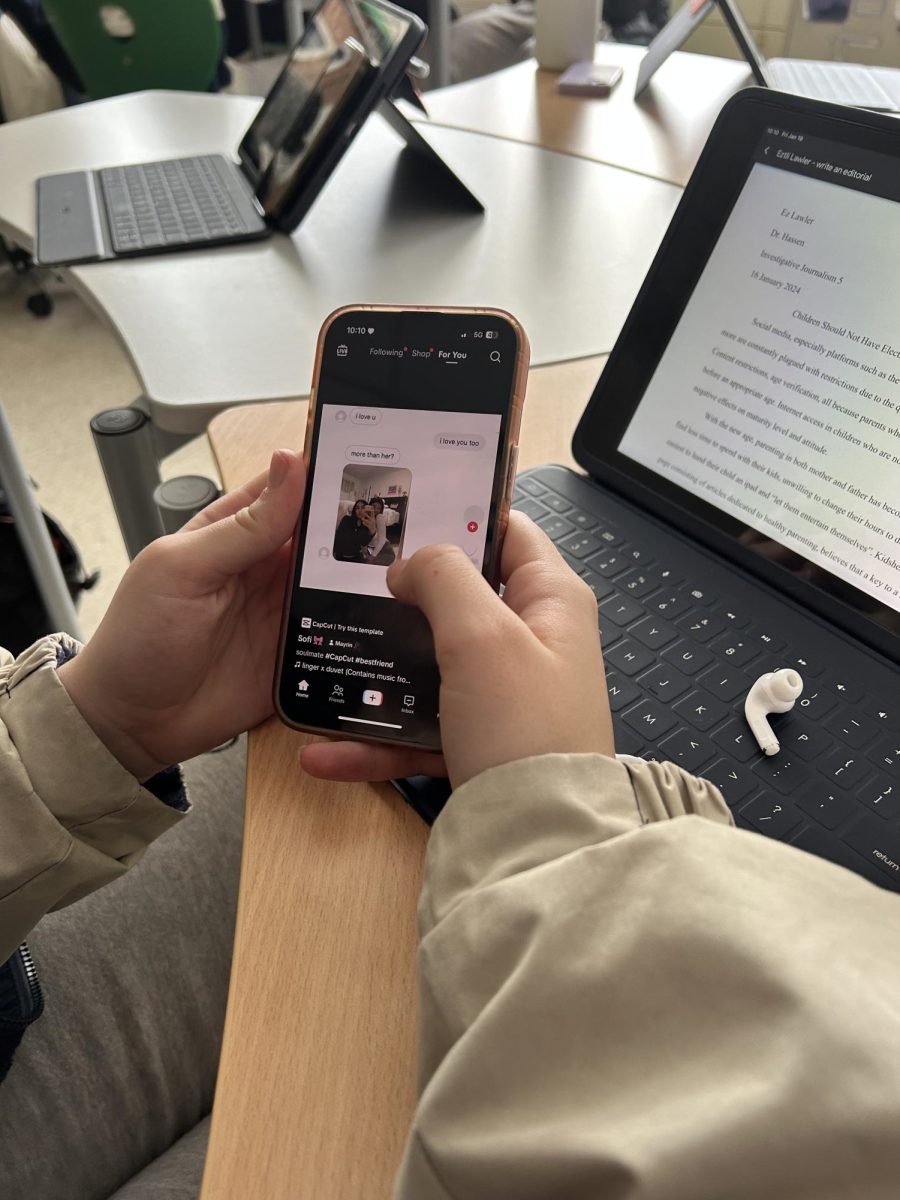“Bring back 1942” was a comment found on the social media platform TikTok during a discussion about the Israel-Palestine conflict. Online users express a desire for another genocide similar to events eighty-one years ago upon those witnessing war crimes. Uneducated teens are wishing harm on humans they have never met—a manifestation of hate crimes that should never exist.
Social media is affecting the political education of America’s youth, and if not fixed, will change democracy forever.
To begin, social media platforms were blowing up during the Black Lives Matter movement known as “BLM”, where supporters from both sides clashed heads and argued that Republicans are racist and Democrats are not. In fact, historical context reveals that during the Civil War, Democrats aimed to keep slaves while Republicans sought their emancipation. Most students and teens, having taken basic U.S. history classes, should understand this, and that individuals are more than just their political affiliation.
According to the Pew Research Center, “Roughly a quarter (23%) of adult social media users in the United States – and 17% of adults overall – say they have changed their views about a political or social issue because of something they saw on social media in the past year.” This suggests that if adults can be swayed by social media, teens, who are on these platforms daily, may be exposed to incorrect or misleading information.
During the BLM movement, a significant rise in mob mentality occurred due to social media promoting hate towards law enforcement, leading to riots in major towns. Phrases like “All cops are bad” became a trend, resulting in the loss of lives among law enforcement.
In addition, the social media platform Twitter is feeding into uneducated teens by removing former president Donald Trump from their platform since he was giving “misinformation.” Removing the former president from the platform promotes that taking away the First Amendment is ok.
Twitter could also remove those who spread rumors or fake news, but they don’t. Instead they let their political views take control, which caused them to violate the First Amendment. Twitter’s justification is that Trump was promoting incitement of violence, meaning he was trying to get someone to commit a crime. Some people believed he was the mastermind behind the January 6th riot of the Capitol Building. Yet this was the media and its listeners blowing a speech out of proportion, and finding a scapegoat to solve their problems. Those involved in the “riot” were tried and some sentenced to fourteen years for just standing in the Capital. The people involved with rioting and damaging police stations and FBI buildings during the BLM riots were not treated the same.
In addition, social media platforms can serve as a means to promote political figures and their campaigns. A study published by The University of Pennsylvania “finds that political newcomers can get a substantial boost in support by using social media channels, which cost next to nothing and are easily tapped by anyone with an internet connection” This new finding opens the door to a cheaper way for politicians to promote their campaigns and to get donors on their side. Also, it allows politicians to get active feedback from followers.
In conclusion, social media has no place in political events as it often makes things worse, exacerbates issues, adding gasoline to the fire. Using social media to create a movement may have some advantages, but also has the potential to completely ruin it for other people by taking the issue way out of proportion.

